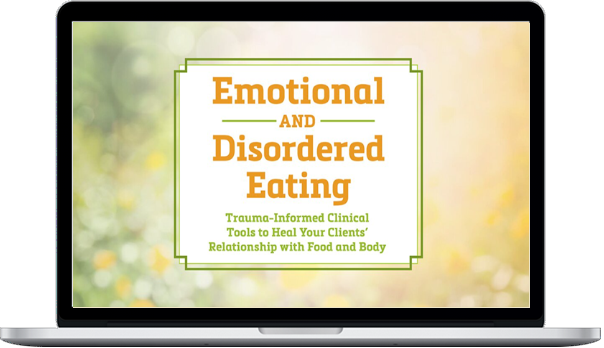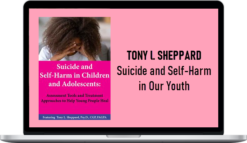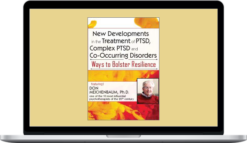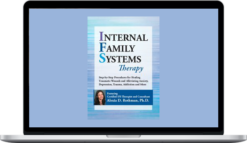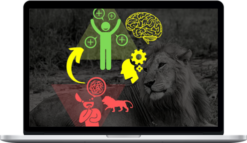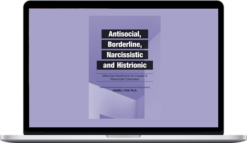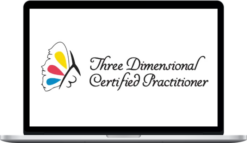Ann Saffi Biasetti – Emotional And Disordered Eating
$249.99 $125.00
»Delivery: Within 21 days
Description
Ann Saffi Biasetti – Emotional And Disordered Eating
Description Of Emotional And Disordered Eating
When your clients struggle with eating, your first move as a therapist may be to develop plans for specific behavioral changes – a list of things clients can do instead of reaching for the fork or limiting food intake.
But these efforts won’t work over the long term. Emotional eating – and the eating disorders it can become – is rooted in nervous system dysregulation and disembodiment that behavior change strategies alone won’t shift.
The body needs to be included for treatment to be effective. Without it, disembodiment will continue, keeping your clients stuck in the cycle of disordered eating and losing hope in your work with them.
Watch Ann Saffi Biasetti, PhD, LCSWR, CEDS, specialist in eating disorders and somatic psychotherapy, for this in-depth training where you’ll discover how to integrate the body in treatment in a way that fosters real change in your clients’ relationships with food and their bodies!
Packed with practical interventions, this comprehensive seminar will provide you with strategies to:
- Shift from shame to empowerment from the very beginning of treatment
- Calm the nervous system and regulate emotions without turning to food
- Help clients re-establish body cues for hunger and fullness
- Replace the harsh inner critic with self-compassion
Purchase today to help clients manage what is happening on the inside to build resilience, improve emotion regulation, and establish a new compassionate and forgiving relationship with their body!
What You’ll Learn In Emotional And Disordered Eating
Objectives
- Conduct psychoeducation about the nervous system and oppression-related cultural factors.
- Employ body literacy skills to improve clients’ interoceptive awareness.
- Apply somatic and nervous system tracking in session to improve emotion regulation.
- Utilize the skill of somatic tracking for co-regulation.
- Describe the three components of self-compassion and utilize self-compassion skills to reduce shame.
- Differentiate between emotional eating and a clinical eating disorder to determine appropriate level of care.
Outline
The Nervous System Intake
Reduce Shame and Open Self-Compassion
- Redefining the term emotional eating
- Why somatic interventions are imperative in breaking the cycle of disordered eating – and the state of the research on them
- Polyvagal understanding of the autonomic nervous system
- Embodiment tools for clients
- Mapping the embodied states of the clinician’s own nervous system
- A trauma-informed, embodied understanding of emotional and disordered eating
- Case Examples and Practices:
- Feet, spine and seat
- Fluid breath
- 3-stage breath
- Release breath
What Happens in My Body, Happens in My Brain
How Embodiment Heals
- The role of the limbic system
- Interoceptive awareness as the missing link
- Impact of the nervous system on hunger and fullness cues and eating behaviors
- How to help clients develop body literacy
- Case Examples and Practices:
- Body scan for body literacy
- Brain-based interoceptive awareness
Co-Regulation: Relationship Matters!
How the Therapist’s Nervous System Impacts Clients
- Neuroception according to polyvagal theory
- Embody neuroception in a session
- Somatic tracking and intervention
- Keys to building nervous system window of tolerance for eating-related behavior change
- Case Examples and Practices:
- Embodying safety and protection
- Somatic tracking demonstration
The Intersection of Culture and Disembodiment:
Systems that Dysregulate and Their Impact on Body Image
- Embodiment and body image
- Oppressive systems that cause dysregulation
- Diet culture and media/marketing
- Body image, nervous system, and emotions
- Case Examples and Practices:
- The way you were born
- In this moment, with these feelings
Embodying Self-Compassion
Self-Compassion as Essential to Emotion Regulation
- The three components of self-compassion
- The power of self-compassion to balance, heal and repair emotional eating
- Developing self-compassion when there is none to be found
- How self-compassion decreases objectification and body shame
- Help clients develop body forgiveness
- Case Examples and Practices:
- Embodying dysregulation with compassion
- Body forgiveness
When Emotional Eating is Really Eating Disorder
And Other Clinical Considerations
- Key diagnostic questions and assessments
- When do clients need an eating disorder specialist or a higher level of care?
- How to integrate treatment strategies and approaches – what does it mean to be somatically-informed?
- Countertransference issues
- Impact of the therapist’s own relationship with body, body image, food, and eating
- Limitations of the research and potential risks
Target Audience
- Counselors
- Social Workers
- Psychologists
- Art Therapists
- Marriage & Family Therapists
- Physicians
- Addiction Counselors
- Case Managers
- Registered Dieticians & Dietetic Technicians
- Physicians
- Nurses
- Psychiatric Nurses
- Other Mental Health Professionals
About Ann Saffi Biasetti
Ann Saffi Biasetti, PhD, LCSWR, CEDS, CIAYT, is a practicing clinician for over 30 years specializing in somatic psychotherapy. She is an eating disorder specialist, certified mindfulness teacher, Mindful Self-Compassion (MSC) teacher, and Certified Yoga Therapist (C-IAYT). Dr. Biasetti teaches in the Self-Compassion in Psychotherapy (SCIP) program, where she shares her expertise in somatic self-compassionate interventions for eating disorders recovery and serves consultation leader.
Ann Saffi Biasetti has led well-received retreats at Kripalu and Shambhala Mountain Center and has led professional training workshops through her Befriending Your Body (BFYB) certification program for eating disorder recovery. She is the author of Befriending Your Body: A Self-Compassionate Approach to Freeing Yourself from Disordered Eating and The Awakening Self-Compassion Card Deck: 52 Practices for Self-Care, Healing and Growth. Dr. Biasetti maintains a private practice in Saratoga Springs, NY.
Speaker Disclosures:
Financial: Dr. Andreana Saffi Biasetti maintains a private practice. She receives a speaking honorarium and recording royalties from PESI, Inc. She has no relevant financial relationships with ineligible organizations.
Non-financial: Dr. Andreana Saffi Biasetti is a member of the Polyvagal Institute, the Academy for Eating Disorders, the International Yoga Therapy Association, the National Association of Social Work, and the Yoga Alliance.
More courses from the same author: Ann Saffi Biasetti
Delivery Policy
When will I receive my course?
You will receive a link to download your course immediately or within 1 to 21 days. It depends on the product you buy, so please read the short description of the product carefully before making a purchase.
How is my course delivered?
We share courses through Google Drive, so once your order is complete, you'll receive an invitation to view the course in your email.
To avoid any delay in delivery, please provide a Google mail and enter your email address correctly in the Checkout Page.
In case you submit a wrong email address, please contact us to resend the course to the correct email.
How do I check status of my order?
Please log in to HealingCourse account then go to Order Page. You will find all your orders includes number, date, status and total price.
If the status is Processing: Your course is being uploaded. Please be patient and wait for us to complete your order. If your order has multiple courses and one of them has not been updated with the download link, the status of the order is also Processing.
If the status is Completed: Your course is ready for immediate download. Click "VIEW" to view details and download the course.
Where can I find my course?
Once your order is complete, a link to download the course will automatically be sent to your email.
You can also get the download link by logging into your HealingCourse account then going to Downloads Page.
Related products
Total sold: 2
Total sold: 7


